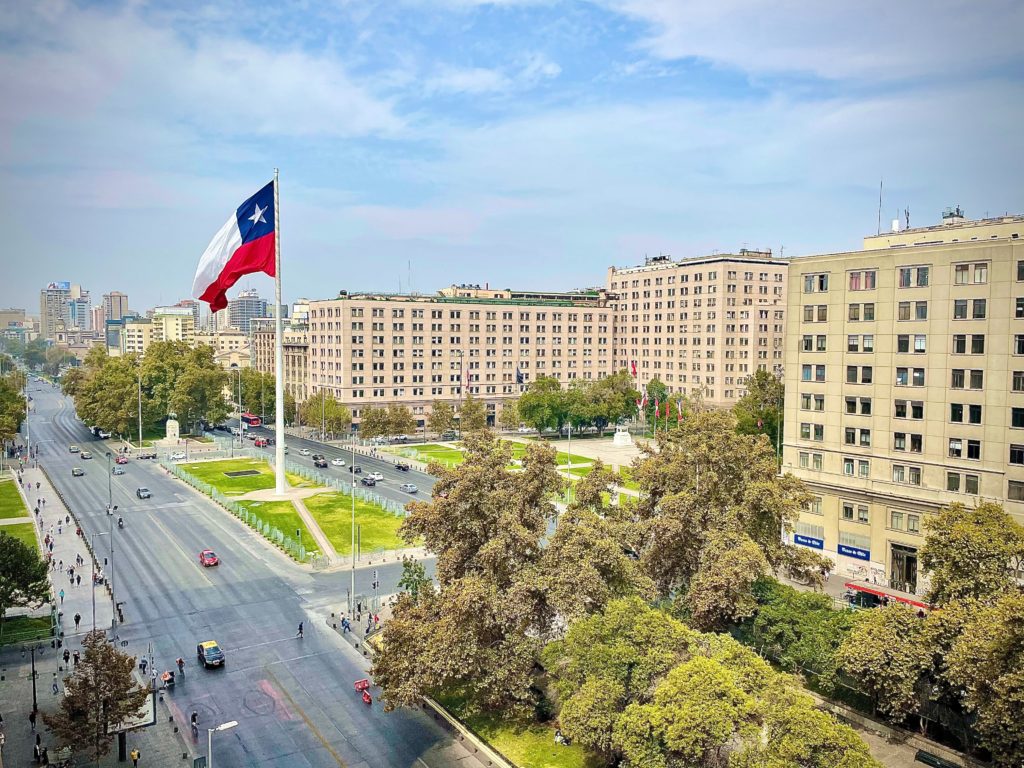Fecha de última actualización: 02/06/2025

Politically exposed persons are a type of subject found around the globe. Over the years, and as a result of intergovernmental cooperation within the FATF, states have been developing their regulations concerning politically exposed persons, and today we will analyze the case of Chile.
Chile, like other Latin American countries such as Argentina, Uruguay, or Ecuador, also provides for politically exposed persons in its anti-money laundering regulations. The regulatory framework concerning PEPs will be:
- Law 19913, which establishes the Financial Intelligence Unit and modifies various provisions concerning money laundering;
- Circular 49/2012 from the Financial Intelligence Unit.
The Law empowers the Financial Intelligence Unit of Chile to “issue general application instructions” for obligated subjects, and this body will also be authorized to provide specific instructions to particular obligated subjects. It is through this type of instruction — known as circulars — that Chilean legislation has been shaped. For example, Circular No. 53 requires registration in the UAF Reporting Entities Registry. Obligated subjects in Chile register in this registry to facilitate information communication to the Financial Intelligence Unit.
Regarding PEPs, Circular No. 49 from the Financial Analysis Unit, dated December 3, 2012, is the key instruction that develops the concept of PEP in Chile. Among its obligations, it emphasizes the necessity to establish systems to determine whether a potential client is a PEP or not, implement enhanced due diligence measures in the established business relationship with a PEP, or obtain senior management approval to establish a business relationship with a politically exposed person.
List of PEPs in Chile
Circular 49/2012 establishes that PEPs will include “Chilean or foreign individuals who hold or have held prominent public functions in a country, for at least one year after the end of their term.” The Instruction further clarifies the concept of PEP, stating that it will include “heads of state or government, high-ranking politicians, senior government, judicial or military officials, and senior executives of state-owned enterprises.”
Continuing with this definition of PEP, the Financial Intelligence Unit proceeds to establish a list of positions that “at a minimum must be classified as PEP in Chile,” emphasizing that this listing of positions will not be exhaustive:
- President of the Republic.
- Senators, deputies, and mayors.
- Ministers of the Supreme Court and Courts of Appeals.
- Ministers of State, Undersecretaries, Intendants, Governors, Regional Ministerial Secretaries, Ambassadors, Senior Heads of Service, both centralized and decentralized, and the immediate superior executive who must substitute each of them.
- Commanders-in-Chief of the Armed Forces, General Director of Carabineros, General Director of Investigations, and the immediate superior officer who must substitute each of them.
- National Prosecutor of the Public Ministry and regional prosecutors.
- Comptroller General of the Republic.
- Counselors of the Central Bank of Chile.
- Counselors of the State Defense Council.
- Ministers of the Constitutional Court.
- Ministers of the Competition Tribunal.
- Regular and alternate members of the Public Procurement Tribunal.
- Counselors of the Public Management Board.
- Directors and senior executives of public companies, as defined by Law No. 18.045.
- Directors of corporations appointed by the State or its agencies.
- Members of the leadership of political parties.
Finally, it is important to highlight that Chilean regulations also classify as PEPs the spouses, relatives up to the second degree of consanguinity, and “individuals who have entered into a joint action agreement, through which they have sufficient voting power to influence corporations established in Chile.”
Below are the main sources we used at Pibisi to extract the PEPs of Chile:
- Website of the Transparency Portal of the Republic of Chile
- Website of the Undersecretary of Regional and Administrative Development of the Republic of Chile
- Website of the Ministry of the Interior and Public Security of the Republic of Chile
- Website of the Undersecretary of Regional and Administrative Development of the Republic of Chile
- Website of the Ministry of Foreign Affairs of the Republic of Chile
- Website of the Government of the Republic of Chile
- Website of the National Congress Library of Chile
- Website of the Senate of the Republic of Chile
- Website of the Chamber of Deputies of the Republic of Chile
- Website of the Public High Management Council
- Website of the State Defense Council of the Republic of Chile
- Website of the Constitutional Court of the Republic of Chile
- Website of the Judiciary of the Republic of Chile
- Website of the Public Prosecutor’s Office of the Republic of Chile
- Website of the Competition Tribunal of the Republic of Chile
- Website of the Public Procurement Tribunal of the Republic of Chile
- Website of the Comptroller General of the Republic of Chile
- Website of the Central Bank of the Republic of Chile
- Website of the Air Force of the Republic of Chile
- Website of the Army of the Republic of Chile
- Website of the Armed Forces of the Republic of Chile
- Website of the Investigation Police of the Republic of Chile
